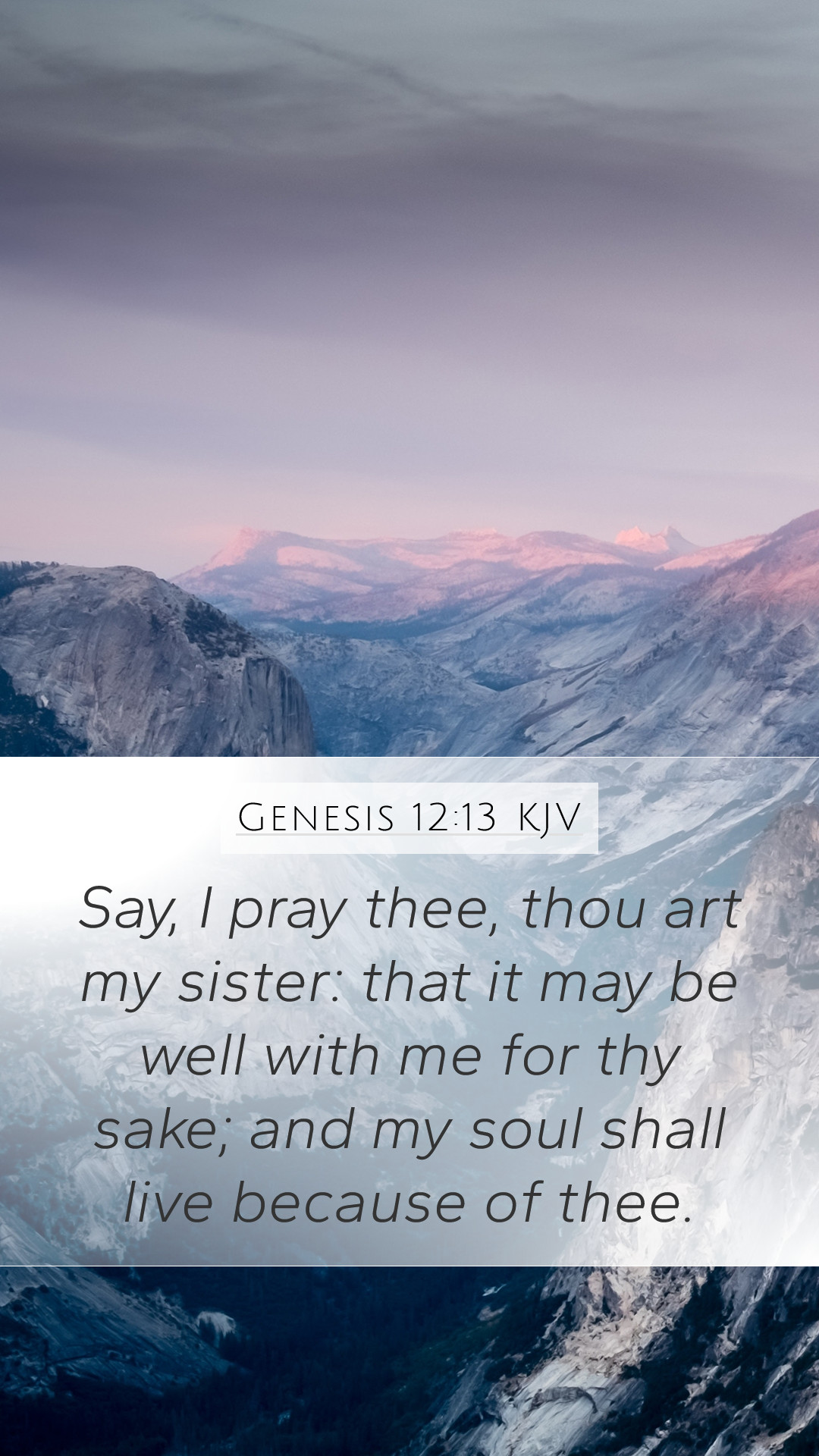Understanding Genesis 12:13
Bible Verse: Genesis 12:13 - "Say, I pray thee, thou art my sister: that it may be well with me for thy sake; and my soul shall live because of thee."
This verse captures a crucial moment during Abram's journey to Egypt. In the context of Bible verse meanings, it reveals themes of survival, deception, and familial loyalty.
Contextual Overview
The backdrop of Genesis 12:13 is set against Abram's migration in response to God's calling. Famine drives him to Egypt, where he fears for his life due to Sarai’s beauty. In an attempt to protect himself, Abram encourages Sarai to misrepresent their relationship.
Insights from Commentaries
- Matthew Henry: Henry emphasizes the moral conflict within Abram's choice. He proposed that Abram's lack of faith led to a lack of reliance on God’s protection, demonstrating the troubling lengths one might go to when driven by fear.
- Albert Barnes: Barnes interprets the verse as a familial safeguard. He suggests that while Abram’s intentions seem protective on the surface, they ultimately stem from a lack of trust in God's providence, shedding light on human frailty.
- Adam Clarke: Clarke discusses the cultural implications and the risks of telling half-truths. He argues that although Abram's strategy could be seen as wise, it reflects a deeper issue of integrity and reliance on God, illustrating the moral grayness present in difficult situations.
Thematic Analysis
This verse speaks to various themes relevant to Bible verse interpretations:
- Fear and Protection: Of immediate significance is Abram’s fear for his life, which he prioritizes over full honesty with the truth.
- Compromise of Integrity: There is a moral dilemma present, showcasing how desperate times can lead individuals to justify questionable actions.
- God’s Covenant and Protection: Implicit in this situation is the tension between human action and divine promise; God had already made a covenant with Abram, yet he chose to act outside of faith.
Application to Daily Life
Understanding Genesis 12:13 is vital for reflecting on our own lives. It teaches the importance of trust in divine protection, especially when confronted with daunting challenges. In Bible study groups or online Bible study, this verse can lead to discussions on trust, faith, and the consequences of our decisions.
Cross References
- Genesis 20:2: Abraham similarly misrepresents Sarai.
- Exodus 20:16: The commandment against false testimony resonates with Abram's actions.
- Psalm 37:5: Trust in the Lord and He shall bring it to pass speaks to reliance on God amidst fears.
Conclusion
Genesis 12:13 serves as a profound illustration of human behavior in the face of fear, emphasizing the need for Bible study insights into the complexities of faith and morality. In reflective moments, this verse reminds believers to seek divine counsel and maintain integrity in their actions, even during trials.


